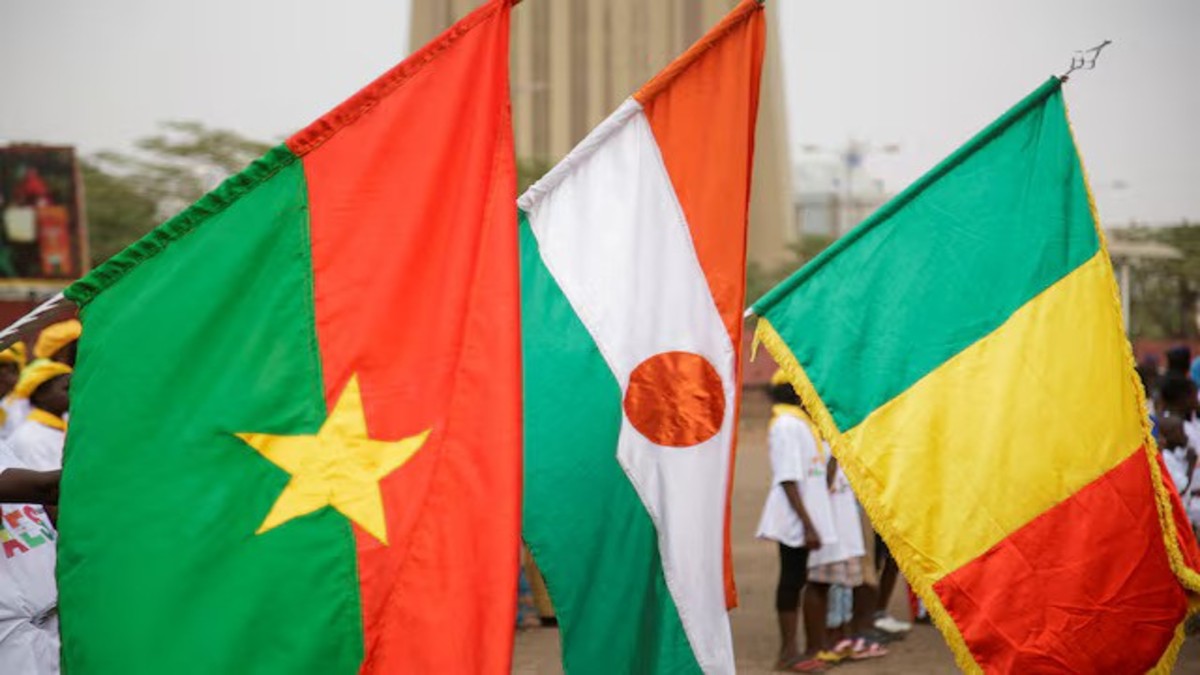The Alliance of Sahel States (AES), comprising Mali, Niger, and Burkina Faso, was announced in 2023. All three countries are under military rule, having severed ties with France, and came together to establish a framework for political, economic and security cooperation. All three countries formally exited the regional bloc Economic Community of West African States (Ecowas) this year, claiming that the bloc did not safeguard the interests of its members and was closely aligned with the Western powers.
AES positions itself as a regional organisation that espouses values of sovereignty and freedom from colonial influence. All three military-ruled states are closely aligned with Russia; however, the AES has failed at the fundamental job for which it was formed – providing security to its citizens and establishing the writ of the state.
Roots of Islamist Insurgencies
The Sahel region comprises Senegal, Gambia, Mauritania, Guinea, Mali, Burkina Faso, Niger, Chad, Cameroon and Nigeria. Since gaining independence in the 1960s, many countries in the Sahel have suffered from weak and illegitimate governance, economic decline and climate change, conditions which are conducive for violent extremism to flourish in the Liptako-Gourma region, located at the borderlands of Mali, Niger and Burkina Faso.
However, the collapse of the Libyan state in 2011 was a turning point, as it led to the proliferation of arms and fighters in the region. The porous borders of the three states, along with weak governance structures, structural vulnerabilities, local grievances and limited state presence, were easy targets for groups such as Jama’a Nusrat ul-Islam wa al-Muslimin (JNIM) and the Islamic State in the Greater Sahara (ISGS) to establish a presence, while disputes over grazing and farmland, along with marginalisation of local communities, led to easy recruitment of fighters in these groups. These groups are directly involved or are facilitating illegal activities such as arms trafficking , smuggling and illicit mining.
Quick Reads
View AllWeak governance and ineffective security have allowed these groups to operate in the region with relative impunity. High-profile attacks targeting civilians, infrastructure and outposts have become very frequent in recent years, impacting education and health in these three countries even though they have poor indicators in the human development index (HDI). Escalating violence in Mali, Niger and Burkina Faso has made West Africa one of the fastest-growing displacement crises in the world, while 3.5 million people are cut off from humanitarian assistance, compounding the crisis unfolding in these three countries.
Security Failures and Operational Challenges of AES
AES was formed to establish security, economic and political cooperation. Although these countries promised that the bloc would disrupt the existing order in West Africa, the security situation in these three countries has not improved, challenging their assertion. Limited resources, both financial and physical, along with inadequate training, have not been conducive for joint counterterrorism efforts.
The alliance aligned with Russia and its state-funded paramilitary force, Wagner; however, the outcomes have not been desirable even though military rulers initially welcomed the Russian assistance and approved of the no-strings-attached approach of the Wagner Group.
The Wagner Group has been accused of human rights abuses, undermining local governance and intensifying conflict dynamics, alienating the local population. In 2024, the Wagner Group suffered a defeat when JNIM and Tuareg separatists ambushed a joint Malian-Wagner convoy in Northern Mali. This shattered the myth of Wagner being an effective military force.
Although Russia has established the Africa Corps to consolidate its operations and maintain influence in the region, it is suffering from a recruitment shortage and waning capacity. The high-profile attacks conducted with such impunity and the failure of the Wagner Group to stabilise the region put a question mark on the viability of AES.
Socio-Economic Factors and Legitimacy Crisis
Poverty, unemployment and climate-related crises have impacted governance. Agriculture remains the backbone of these three countries; however, the agricultural productivity is low, and despite the majority of the workforce being employed in the sector, the agricultural production remains insufficient to meet the needs of the local population, and over 6 million people suffer from food insecurity. The conflict has further exacerbated food insecurity, as starvation as well as attacking crops and livestock has been used as warfare tactics. The temperatures in the Sahel are rising 1.5 times faster than the global average, impacting livelihoods.
The absence of the state to address the crisis impacting the population at large fuels grievances. The governments in these three countries. The marginalisation of ethnic and pastoral communities along with unresolved land disputes has also been a factor in enhancing insecurity and a weak spot which the Islamist groups have exploited. The military rule in all three states, coupled with the rulers’ anti-Western stance, has alienated both the Western world and the region from one another. The exit from Ecowas also isolated these three countries, as they cannot leverage global as well as regional assistance to tackle security challenges.
Looking Ahead: Prospects and Limitations
The future of AES depends on how well it tackles governance and security-related challenges, and for that it needs Ecowas as well as the Western world. Taking assistance from Russia has also not served the AES, as security situations have not improved. Therefore, it is imperative that AES countries take large-scale reforms to address complex challenges and reassess their relationship with the global community.
(The writer is Research Fellow, India Foundation. Views expressed in the above piece are personal and solely those of the author. They do not necessarily reflect Firstpost’s views.)
)